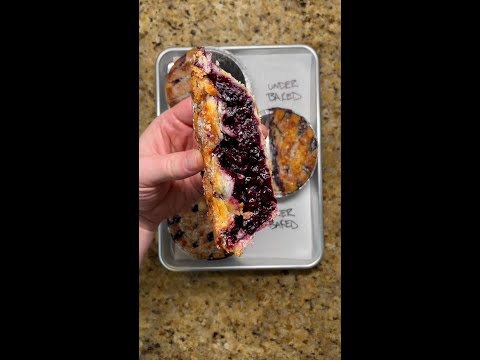Baking the perfect pie is an art that many aspire to master. Whether you’re a seasoned baker or a novice ready to take on your first pie, having a set of expert tips at your disposal can make all the difference. From flaky crusts to perfectly set fillings, here are some of my best pie baking tips to help you turn out delicious, picture-perfect pies every time.
#### 1. **Start with the Crust**
– **Choose the Right Fat**: The choice of fat (butter, shortening, lard, or a combination) can significantly affect the texture of your pie crust. Butter is favored for its flavor, while shortening and lard tend to make flakier crusts.
– **Keep Ingredients Cold**: Always start with cold ingredients, especially the fat and water. This ensures small bits of fat remain in the dough, creating pockets that will steam in the oven and lead to a flaky crust.
– **Don’t Overwork the Dough**: When mixing your dough, be gentle and quick. Overworking the dough develops gluten which will make your crust tough instead of tender.
– **Chill the Dough**: After making your dough, let it chill for at least an hour before rolling it out. This helps relax the gluten and solidify the fat.
#### 2. **Rolling and Shaping**
– **Flour Sparingly**: Use just enough flour to prevent sticking when rolling out your dough but be careful not to incorporate too much as it will dry out your crust.
– **Achieve Uniform Thickness**: Roll your dough evenly to ensure it cooks uniformly. Aim for about 1/8 inch thickness.
– **Careful Transfer**: To transfer dough without tearing, roll it around your rolling pin and then unroll it over your pie dish.
– **Decorative Edges**: Crimp edges for a classic look or try pressing with a fork for something simpler yet elegant.
#### 3. **Filling Perfection**
– **Cooking Starches First**: For fruit pies, cook some of the fruits beforehand especially if they are very juicy. This pre-cooking can help concentrate flavors and prevent soggy bottoms.
– **Avoid Underfilling or Overfilling**: Too little filling can cause the crust to cave in; too much can lead to spills in your oven.
#### 4. **Baking Techniques**
– **Preheat Your Oven**: Ensure you give your oven ample time to reach the right temperature before baking for consistent results.
– **Use a Baking Stone or Steel**: Placing one in the bottom rack helps maintain oven temperature especially when opening doors frequently.
– **Egg Wash for Shine**: Brushing an egg wash over top crusts not only helps achieve golden perfection but also adds glossiness.
#### 5. **Cooling & Serving**
– **Cool Completely Before Cutting**: Letting pie cool is crucial as it sets up filling properly; cutting too soon might result in a runny mess.
#### 6. **Troubleshooting Common Issues**
– *Soggy Bottom*: Pre-bake (blind bake) crusts especially for custard pies; ensure fillings aren’t too wet before adding them.
**7 – Special Tip: Seasonal Adjustments**:
Adjust spices according its season; cinnamon fits fall perfectly whereas lemon zest might brighten summer pies.
Each baked pie marks an accomplishment in any baker’s cookbook—knowing these tips should enhance both confidence skill levels alike! Whether aiming simple family dinner dessert grand holiday feast centerpiece nailing basics through careful attention detail will surely yield delectable results every time! Happy baking!
